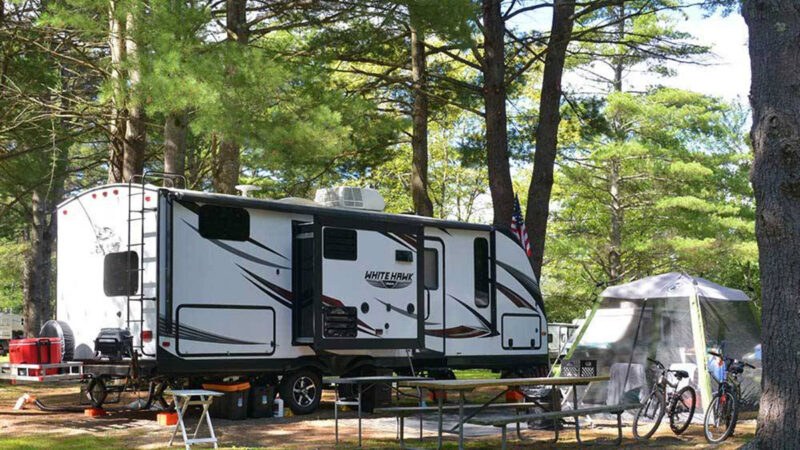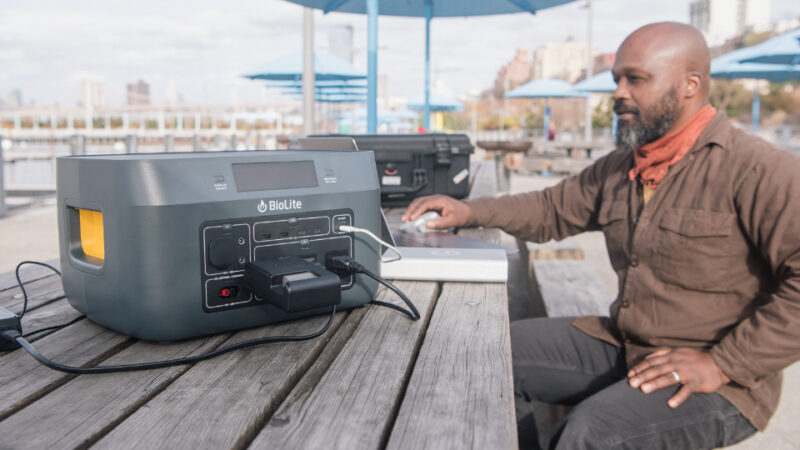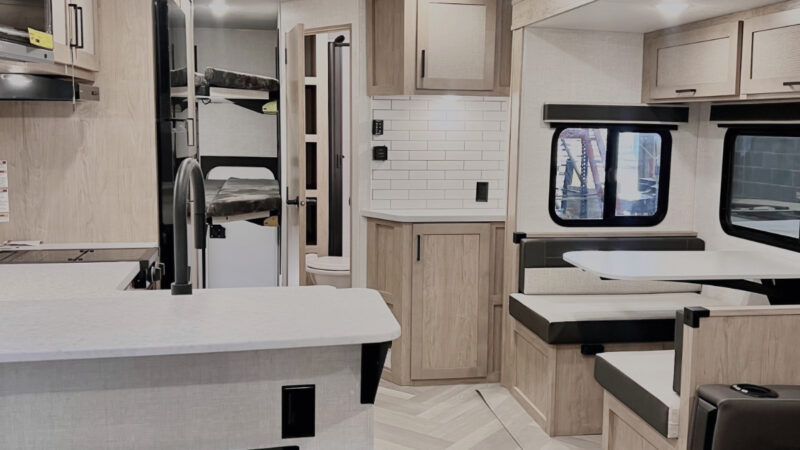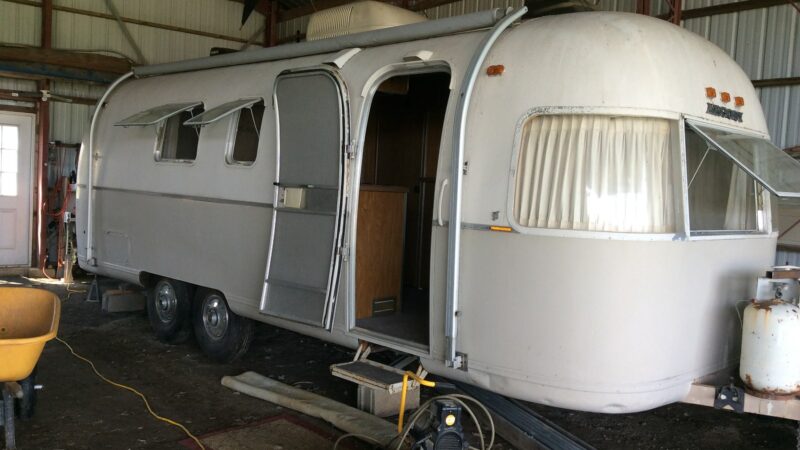Know-How: The ABCs for Your RV
Q: Rookie question, but what does this acronym GVWR mean, and what should it mean to me? Which parts of this alphabet soup of stats are most important when I’m choosing an RV?
A: There’s more than one way to weigh a camper. GVWR stands for gross vehicle weight rating, and it’s a manufacturer’s rating of any given vehicle’s maximum allowable loaded weight. That’s “loaded,” as in including all passengers, cargo, accessories, fuel, and, in the case of a tow vehicle, weight on the trailer hitch. Think of it as the maximum amount your rig should ever weigh if it were parked on a truck scale.
It is indeed just one abbreviation among many that tells you how much a vehicle can handle. But the terminology probably looks more complex than the meanings behind the terms. Gross combined vehicle weight rating (GCWR) is the maximum combined weight of the tow vehicle and trailer together. Gross axle weight rating (GAWR) is the maximum weight either axle can carry individually—the rating for the front axles (often, F/GAWR) and for the rear (R/GAWR) will be different.
Curb weight, meanwhile, is the weight of a vehicle when it’s ready to run, with oil and fuel but without passengers or cargo, while payload is how much weight the vehicle can carry in cargo and passengers. A maximum tow rating is how much automakers have deemed a vehicle can safely tow, while maximum tongue weight (MTW) is the most weight that should be applied to a tow vehicle’s hitch. Finally, gross trailer weight (GTW) is a measurement of how much a loaded trailer actually weighs.
Why does this stuff matter? Unlike movie ratings, where sneaking into an R-rated film at 16 won’t kill you, a vehicle’s ratings are important for safety and dependability: You never want to exceed them.

Image Credit: Todd Detwiler
Q: I’ve been seeing folks redesigning RVs to include cool, retro-style refrigerators from brands like SMEG. But don’t most RVs use refrigerators from specialized manufacturers? What do I need to know?
A: The rigors of RV use put unique demands on a fridge. It must be able to fit into a compact space and—most importantly—withstand considerable vibration and impacts as it goes down the road, year after year (not just during shipping, as with residential refrigerators). And so, you’re right: Most RVs use refrigerators made for the job by Dometic, Norcold, or Atwoods.
In case you’re not up on your Williams Sonoma catalogs, SMEG is an Italian appliance manufacturer: Smalterie Metallurgiche Emiliane Guastalla. The company makes a line of stylish, premium residential refrigerators with a classic, throwback look. And it’s true—that style is showing up on Pinterest and RV redesign blogs. But there’s a serious problem with a 120-volt, AC-only refrigerator in an RV: How are you going to keep your food cold while driving?
RVs can use alternating current when they’re stationary and plugged into shore power. When you’re rolling down the highway, however, the battery’s DC (direct current) takes over. Propane can power some appliances when you’re not plugged in, but not a residential fridge. You could add a large battery bank, solar panels, and an inverter system—but it’s a considerable expense. Or you could use power from the tow vehicle’s alternator, routed through a large inverter, if there’s enough charging capacity.
But I suggest sticking with a conventional RV fridge, one that allows propane operation. There are other ways—a vintage-style laminate panel, say—to achieve that vibe you’re thinking about.
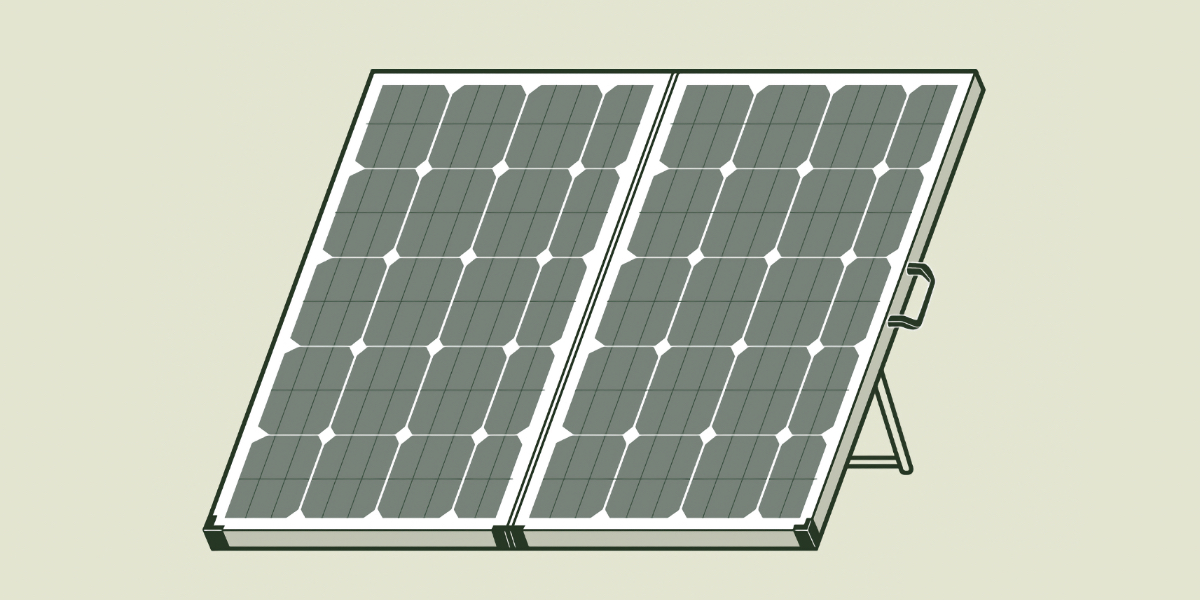
Image Credit: Todd Detwiler
Q: I want to ready my RV for off-grid living. What do I need to know before having the first real conversation about solar panels?
A: First, decide exactly what you want from your system: the more power, the more cost. Do you simply want to be able to boondock a bit longer before having to recharge batteries? Or do you want to run a system totally off-grid, including air conditioning, without running a generator or hooking up to campground power?
Once that’s clear, there’s a whole lot to know before buying an RV solar system—not just about panels, but also other major components, including batteries and inverters needed to complete the system. There are now three main kinds of solar panels for RVs: monocrystalline, polycrystalline, and amorphous. Stick with me here. Polys are cheaper, and amorphous can bend, but monocrystalline panels are the most efficient of the three, at least right now, generating the most energy on your limited roof space. One promising upcoming advancement is what is called perovskite cells, which may soon come close to doubling efficiency.
You’ll need deep-cycle batteries to store power generated by solar (many folks are switching to lithium batteries because of their greater capacity and lighter weight). Also: an efficient solar controller to regulate voltage and a quality, efficient full sine-wave inverter, which will turn the batteries’ DC power into 120-volt AC power, compatible with electronic equipment and appliances.
Questions about your road trip ride? Write us at [email protected].
The post Know-How: The ABCs for Your RV appeared first on RV.com.
Source: https://www.rv.com/servicing-care/know-how-the-abc-for-your-rv/

